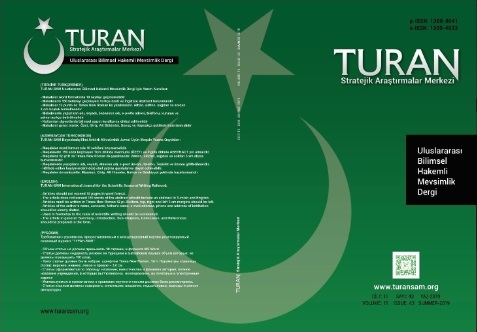ORGANIZATION CULTURE AND REVIEW OF EAST WEST RELATIONS DURING COLD WAR
ORGANIZATION CULTURE AND REVIEW OF EAST WEST RELATIONS DURING COLD WAR
Author(s): Cenk VarolSubject(s): Military history, Political history, International relations/trade, Security and defense, Management and complex organizations, Cold-War History
Published by: Sage Yayınları
Keywords: Leadership; Globalism; International Organizations;
Summary/Abstract: Organizational culture is formed by and joins with further cultures — particularly the comprehensive culture of the societies in which it functions. This comment climaxes the encounters that global organizations face in launching and upholding a amalgamated culture when functioning in the framework of numerous national, regional and international cultures. In NATO’s foundation years, it was impossible for NATO to resist against Soviet Union’s conventional power. Therefore a new organizational culture, in other words, NATO culture had to be formed as West and strategy was depending on the nuclear weapons’ dissuasive role, and the usage of nuclear weapons was accepted as the fundamental factor of the strategy concept in case of Soviet Union’s aggressive attitude to NATO countries. But, a nuclear duello between USA and Soviet Union may cause an irreparable destruction in Europe and America, so one side’s victory does not mean too much, because of this attitude massive nuclear retaliation concept was abandoned, and changes were done in strategic concept in the frame of more rational and soft principles. In the tension period, NATO’s defense planning was founded on two strategic concepts; selective use of Nuclear Weapons and Trip Wire Strategy and organizational culture is developed accordingly.
Journal: TURAN-SAM
- Issue Year: 11/2019
- Issue No: 43
- Page Range: 308-311
- Page Count: 4
- Language: English

